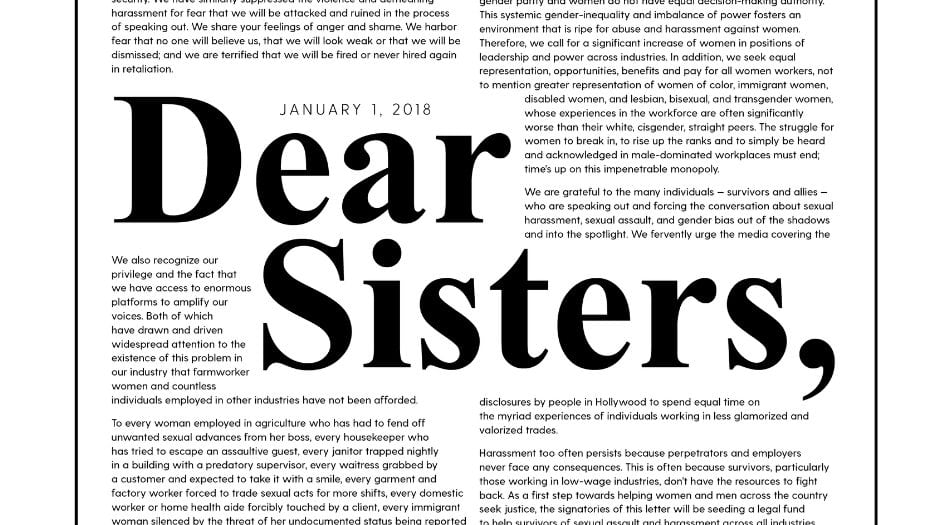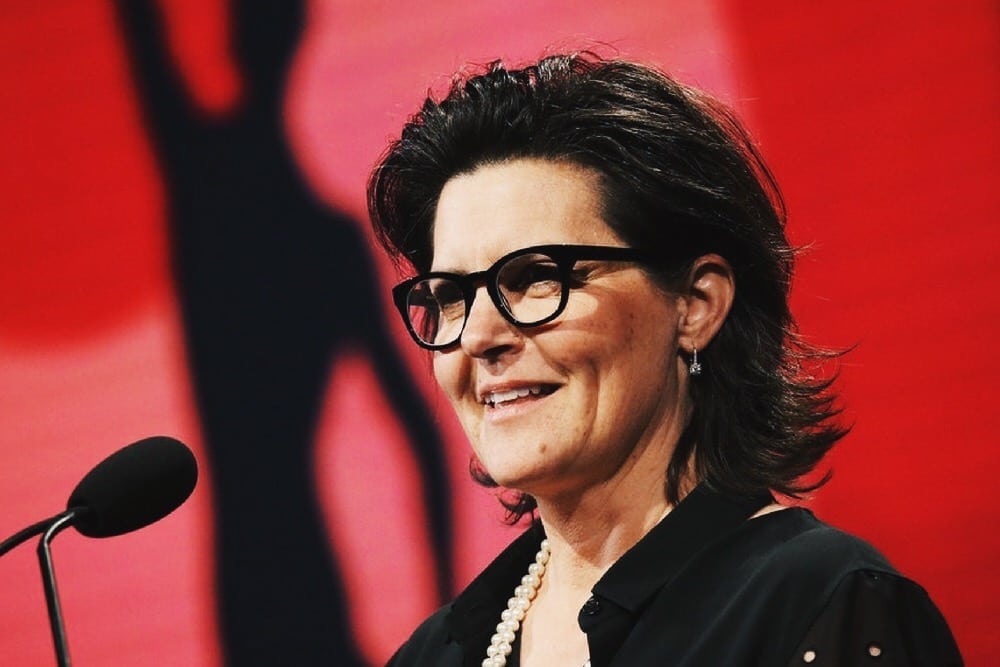When the #MeToo movement was sweeping social media, for many, it was a chance to finally be heard. The hashtag, shared by those women and men who’ve experienced sexual abuse or harassment, was so widespread that it was near impossible to log on to your favorite social media site without seeing it. Time and time again, we saw more posts, more people coming forward, and we were shocked. Could it really be this many people?
#MeToo showed how incredibly far-reaching this problem is, to a degree that many of us have never before faced or understood. It brought this issue to the forefront of a cultural discussion. And, like any cultural discussion, there were plenty of critics. Even recently, an open letter signed by over 100 prominent French women, including actresses and performers, echoed many #MeToo critics: comparing the movement to a witch hunt, the letter defends the “freedom to bother as indispensable to sexual freedom.” The letter complains that many men are being treated unfairly, “when their only crime was to touch a woman’s knee, try to steal a kiss, talk about ‘intimate’ things during a work meal, or send sexually-charged messages to women who did not return their interest.” Overall, this open letter criticized the #MeToo movement as generally going too far.
But there was another group of women who responded to the #MeToo movement, with a different open letter. Over 700,000 female farm workers from the Alianza Nacional de Campesinas wrote a letter specifically to the women in Hollywood who have come forward to speak out against gender-based violence. This letter was not one of criticism; rather, it was a show of solidarity. Of support. “In these moments of despair,” the letter states, “and as you cope with scrutiny and criticism because you have bravely chosen to speak out against the harrowing acts that were committed against you, please know that you’re not alone. We believe and stand with you.”
One letter offered support. Another, criticism.
It would have been easy — who would have held it against them? — for a group of female farmworkers to look at the complaints of “Hollywood elite” and write it off as spoiled whining. But that’s not what they did. They looked instead at their shared experience, and connected intentionally on that level. They chose connection. But the first group, who live and work in practically the same environment as those “Hollywood elite,” who in theory would have much more to connect over, chose instead to speak out with criticism — defending justice, in theory, although no specific cases were mentioned in their letter.
It is so much easier to criticize than to connect. It is so much easier to scoff instead of support. It is so much easier to dwell on our differences, rather than listen and connect over shared experiences. Compassion and empathy take hard work — but in the end, they do a hell of a lot more good than the alternative.
We can see that, in fact, from this very case study. What were the results of these two open letters? Did their words achieve anything?
Well, if you were watching the Golden Globes, you might have noticed the sea of black dresses — worn in solidarity for the Time’s Up initiative. While celebrities are often criticized for merely raising awareness of issues without accomplishing any decisive action, the Time’s Up initiative is led by over 300 Hollywood celebrities and heavyweights — and it is all about action. The initiative includes a push to reach gender parity in Hollywood by 2020, pass legislation that penalizes companies who tolerate workplace harassment, and perhaps most significantly, launches a $14 million dollar (and counting) legal defense fund to support less privileged women who experience workplace harassment in any industry, from hospitality to agriculture to factory workers. Which means this initiative will benefit women well outside the scope of Hollywood. And who do these Hollywood elites, these celebrities, credit with bolstering their resolve in the creation of this initiative, and its importance for women from all walks of life?
The farm workers.
That letter came out November 10th, and inspired and encouraged the women in the Time’s Up initiative to make sure their work addressed working class women, too. In fact, the writers of that letter have teamed up with Time’s Up, and president Monica Ramirez joined actress America Ferrera on “Today” to talk about it!
The letter of the farm workers came out before Time’s Up was public. It was a response to the #MeToo movement, and at the time was only shared to show encouragement, solidarity, and support. In doing so, it inadvertently added valuable perspective, inspiration, and resolve to a powerful initiative. Their compassion, empathy, and support inspired action, and the ripples of their generosity will make a difference for years to come.
I can’t help but wonder: what did the letter criticizing #MeToo hope to accomplish? What affect has it had? Has it made a difference or brought positive change in our world?
Not that I can see.
It is always easier to criticize, no matter the subject matter. It takes a lot more effort to actually listen, to try and find connections, to discover shared experiences — and it takes even more to exhibit actual empathy. But in the end, what’s going to actually make a difference? What’s going to change our world for the better?
To be clear, I don’t necessarily agree with the adage, If you can’t say something nice, don’t say anything at all. Criticism certainly has its place — obviously, this very article is itself a form of criticism. But if you are feeling yourself compelled to criticize, just promise me this: do the work of empathy first. Take the time to listen, try and understand, and then ask yourself if your criticism will actually make a difference for the better.
Otherwise, what on earth is the point?








